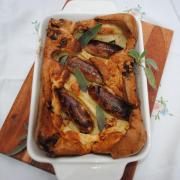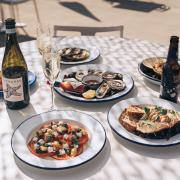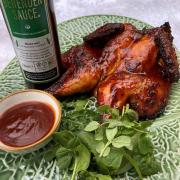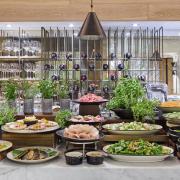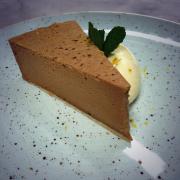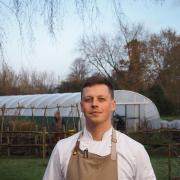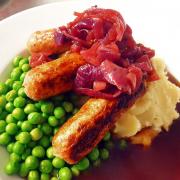John Cannon on a lifetime of farming, an Australian childhood and looking after 30 acres of cobnut trees
Name: John Cannon
Job title: Fruit farmer
Where: Near Plaxtol - the location is truly delightful.
What sort of farm is it? Today we are a fruit farm concentrating on top and stone fruit plus raspberries and cobnuts, but in my father’s time we were a mixed farm.
At what age did you start? Farming has been central to my life all my life. My parents had moved to Australia and I was born over there. By the time I was seven I was helping with lambing (my father said that my small hands were ideal) and I also helped with the dairy herd. We came back to this country when I was 14 – my mother had inherited a farm – and I went to Sevenoaks School. At that time the farm was mixed and we had herd of Jersey and Guernsey cows, Romney sheep, some arable and hops, and also some chickens.
Where did you train? I trained ‘on the job,’ which wasn’t too unusual in those days. I did all sorts of jobs to start. One was cutting mangelworzels which at that time were an important crop for feeding cattle and other livestock; you hardly hear of ‘worzels’ these days. One member of staff in particular – who went on to complete 60 years’ of living and working on the farm – taught me a huge amount.
Tell us about the farm In total we have about 250 acres, some of which is rented from nearby country estates. I help to look after the cobnut side of the business – that’s about 30 acres planted with approximately 5,000 trees. The reminder of the land is down to fruit.
Describe a typical working day
To give you an idea: cobnuts are monoecious and they bear separate male and female flowers on the same tree. Although they are mostly self-fertile, hazels are wind pollinated and crop more reliably when grown in groups. The biggest threat to the crop is attack by wildlife, mostly crows, badgers and grey squirrels, all of which enjoy cobnuts. We begin harvesting towards the end of August, picking while the nuts are still green - in my opinion, young cobnuts are especially delicious, being juicy and sweet. After harvesting and once all the leaves have fallen, we prune the trees and also have to control the vast numbers of suckers the trees produce. There are many different varieties of cobnut; we mostly grow Kent Cobs, but we trial more than 60 varieties.
How do you market? In 1990, in response to the fact that cobnuts weren’t very well publicised, we started the Kent Cobnuts Association and now have 165 members, most are in Kent but we do have a few abroad. Here at Roughway Farm we market mostly through Waitrose and Morrison’s and the wholesale market, and we also supply local farm shops and farmers’ markets. We are certified to Assured Produce and L.E.A.F Marque standards.
Any children following in your footseps? My younger son Giles has taken over management of the fruit side of the farm. My elder son is an accountant and my daughter is an artist. I am delighted to say I have seven grandchildren, several of whom help on the farm during their holidays.
Marks out of 10 for job satisfaction?
Can I give it a 12? n
GET IN TOUCH
Roughway Farm, Roughway Lane, Tonbridge TN11 9SN. 01732 810260 or cannonfruit@btinternet.com






